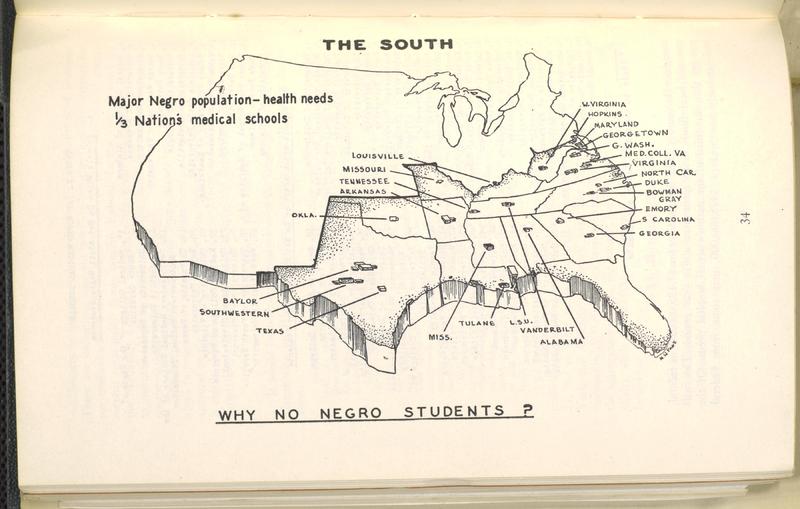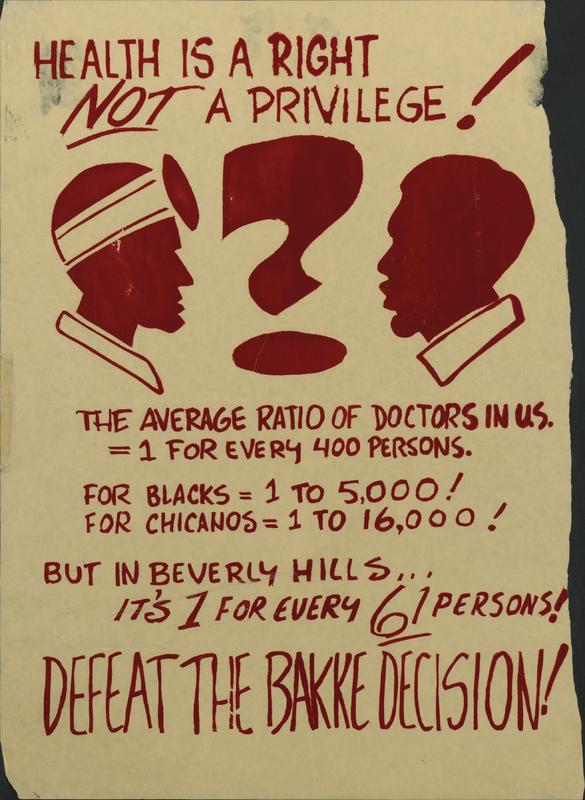Segregated Medical Education

From the library of Cedric Dover in the Manuscript, Archives and Rare Book Library of Emory University
Blacks and other minorities were poorly represented in the health professions in the first half of the 20th century. In 1924, there was only one black physician for every 3,000 blacks compared to one physician for every 670 whites. Historically black medical colleges were founded to address these inequities.
However, as this map illustrates, these programs could not train enough doctors to meet fully the needs of the black community. W. Montague Cobb (1904-1990), a medical civil rights activist, referred to this situation as the enduring “Negro medical ghetto,” maintaining that a segregated health care system led to inferior medical care for African Americans.

Courtesy of Center for the Study of Political Graphics, Los Angeles, California
Regents of the University of California v. Bakke (1978) was a landmark decision by the U.S. Supreme Court that ruled unconstitutional the admission process of the Medical School at the University of California at Davis, which had set aside 16 of the 100 seats for blacks, Chicanos, Asians, and American Indians. Advocates argued that affirmative action policies were essential to address the effects of discrimination, to achieve diversity, and to address the need for more minority doctors. Affirmative action policies continue to be debated today on state and federal levels.
Further Reading
Baker RB, Washington HA, Olakanmi O, et al . Creating a segregated medical profession: African American physicians and organized medicine, 1846-1910. Journal of the National Medical Association. 2009 Jun;101(6):501-12. (PDF)
Washington HA, Baker RB, Olakanmi O, et al. Segregation, civil rights, and health disparities: the legacy of African American physicians and organized medicine, 1910-1968. Journal of the National Medical Association. 2009 Jun;101(6):513-27. (PDF)
Morgan, T. M. (2003). The education and medical practice of Dr. James McCune Smith (1813-1865), first black American to hold a medical degree. Journal of the National Medical Association, 95(7), 603–614.
Lakhan, Shaheen E. Diversification of U.S. medical schools via affirmative action implementation. BMC Medical Education, 2003, 3:6.